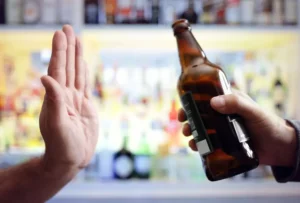What Is A Living Amends?

When you’re looking to change both your behavior and your broken relationships, stop making excuses to fulfill your promises. Soon, you’ll run out of reasons to give your loved ones why you’ve failed them once again. Sometimes, it’s necessary to make amends to employers or co-workers. Whatever the situation, there are a few ways to get started in the process of repairing wrongs with the people you most care about. One of the greatest regrets some people endure is not apologizing to a loved one for past wrongs before they die.
Making Amends: How to Approach Step 9 AA… and When Not To

In these cases, they make promises of cleaning up their act and changing their behaviors to their loved ones just before they die. The origin of living amends in modern use relates to addiction recovery and substance abuse treatment. However, in the context of grief recovery, David Kessler, in his book Finding Meaning, talks about the importance of living amends as a tool for grief healing. In particular, he discusses how to heal when the person we need to make amends with is no longer living. It encompasses emotional healing, the rebuilding of relationships, enhanced self-esteem, personal growth, and the invaluable sense of closure.
Tips For Growing Up My 20 Years of Recovery

They are being fulfilled among us—sometimes quickly, sometimes slowly. We do not receive any commission or fee that is dependent upon which treatment provider a caller chooses. Avoid initiating a conversation if the other person is distracted or upset by something unrelated.
The AA Amends Script: A Full Breakdown and PDF
Self-seeking will slipA momentary loss of focus on the road to recovery which is quickly rectified. It differs from relapse, which suggests a complete return to pre-recovery patterns of behavior. Our whole attitude and outlook on life will change, fear of people and economic insecurity will leave us. We will intuitively know how to handle situations which used to baffle us. We will suddenly realize that God is doing for us what we could not do for ourselves. They are being fulfilled among us sometimes quickly, sometimes slowly.
What’s the Difference between Making Amends and Offering an Apology?
With the realization of how deeply we have hurt others through our addiction, we understand that amends must be made. In this step, we attempt to remove some of the debris created in the past through our actions. It’s not one we use too frequently in our everyday language, but it still holds significant meaning.
Living amends is a concept linked to addiction recovery and part of the twelve-step program for sober living. In simple terms, it means taking responsibility for the person you used to be and how you caused harm to the people in your life who care about you. By taking responsibility, you lay a solid foundation for making amends in recovery.
- Essentially, it means making a radical shift in the way you live and sticking to that.
- Working Step 9 is challenging and you’ll likely need support and assistance as you work through it.
- These steps mean taking ownership of the past, apologizing for wherever you made mistakes and moving forward from those missteps.
- Confidential helplines, like SAMHSA’s National Helpline, offer support and referrals for those navigating addiction recovery.
- It’s definitely central to respect the desires of individuals who opt out and to concentrate on your recovery, rather than on achieving forgiveness or easing personal guilt.

Their parent may feel more pain for their addicted child’s inability to get sober than the material items lost due to the thefts. Don’t talk nonstop, and not give the other person a chance to respond.2. If a person becomes toxic or living amends abusive with you, don’t insist they change their response.

Sober Halloween Coloring Pages
- Living amends is a concept linked to addiction recovery and part of the twelve-step program for sober living.
- Scholarships are granted to individuals who have completed inpatient treatment and are looking to continue their recovery journey in sober living.
- They get the opportunity to express how my actions affected them.
- Before you decide who to approach and how you intend to make amends, reflect on your efforts at recovery and the intent behind making amends.
- The goal of making amends is to right the wrong you did once upon a time.
Steps 8 and 9 help us to move out Alcoholics Anonymous of the shame we have lived in, shame that feeds the cycle of substance use and addiction. We strengthen and reinforce healthy recovery whenever we do our part to repair relationships or reach out to others with support and understanding. It is not enough to help someone only once or to reach out sparingly. If you want to show your loved ones and yourself that you are on a better path and making positive changes, you must continue showing up and remain focused on your recovery.
- Understanding the harm you caused the people in your life is critical for reflecting on your addiction.
- Ask for forgiveness.When asking for forgiveness, be authentic.
- Then, the next time around, make sure to make good on your word.
- It is important to note that just because you have made amends does not mean that your relationships will be completely healed or return back to normal.
- Donating money, volunteering time, or providing care can serve as indirect amends when direct communication is not feasible.
- This step goes beyond verbal apologies – it requires a demonstration of changed behaviors and a commitment to correcting past wrongs.
- Unlike apologizing, making amends involves acknowledging the hurt, amending your behavior (demonstrating changes through action), and righting a wrong.
- Engagement in mutual-help groups like AA can provide crucial assistance, helping individuals stay grounded.
This specificity strengthens the impact of your amends letter and shows that you have thoroughly reflected on your actions. When I first came to recovery, I was certain steps 8 and 9 would be a breeze. After all, I hadn’t hurt anyone (Step 8), so I didn’t need to make any amends (Step 9). In fact, every day I make a living amends to my husband, son, Mom, and brother Ricky. When first writing your list, don’t worry about including everyone you have wronged. Over time, as you strengthen and deepen your recovery from addiction, you will undoubtedly revisit Steps 8 and 9 many times.

Accepting Mixed Outcomes
However, it is equally designed for the people in your life now and in the future. By facing the consequences of our previous actions, we become more aware of the terrible cost of our behavior. This will make us less likely to take equally destructive actions in the future. Working the steps has likely made you a less selfish and self-centered individual. The amends I made to her was admitting my wrongs and shortcomings due to my addiction.
